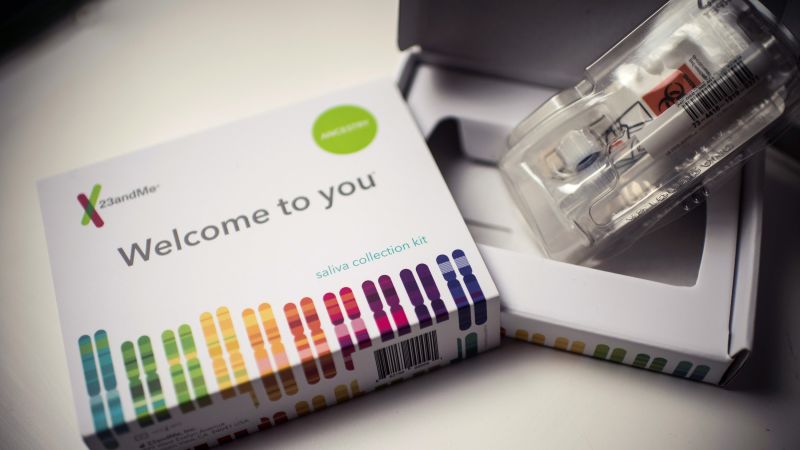A nonprofit organization spearheaded by Anne Wojcicki, the co-founder and former CEO of 23andMe, has successfully acquired the genetic testing company following its bankruptcy declaration in March. TTAM Research Institute, based in California, will purchase 23andMe for $305 million, as announced in a press release on Friday.
This development concludes a competitive bidding process involving TTAM and Regeneron Pharmaceuticals. Regeneron had previously offered $256 million for most of 23andMe’s assets, announcing its bid on May 19. The company informed CNN on Saturday that it opted not to submit a higher offer, citing its evaluation of 23andMe’s remaining value.
23andMe did not respond to CNN’s inquiries regarding the matter.
Wojcicki resigned from 23andMe on March 24, coinciding with the company’s Chapter 11 bankruptcy filing. The firm’s difficulties became prominent in September 2024, when all seven of its independent directors resigned, expressing dissatisfaction with Wojcicki’s “strategic direction” and plans to privatize the company. By November 2024, 23andMe had implemented a significant workforce reduction, cutting around 40% of its employees, or roughly 200 jobs, and halted its therapeutic research in a bid to restructure.
Once valued at $6 billion, 23andMe has gathered genetic information from 15 million customers using at-home DNA testing kits that analyze saliva samples. Although these kits provided “personalized genetic insights” to identify potential health risks, the company struggled with converting one-time purchasers into regular subscribers.
Concerns over customer data privacy arose following the bankruptcy, as users feared their genetic information might be sold to third parties. In response, twenty-seven states and the District of Columbia filed a lawsuit on Monday aimed at preventing the sale of genetic data without the explicit consent of customers.
Companies could leverage 23andMe’s genetic data to tailor their products or marketing strategies. For example, genetic predispositions can inform dietary preferences. In discussions with CNN, Gideon Nave, an associate marketing professor at the University of Pennsylvania’s Wharton School, emphasized the potential for genetic data to aid in the development of personalized medicine.
Despite existing fears, regulations to prevent genetic discrimination are limited; however, the Genetic Information Nondiscrimination Act does provide some protections against the use of genetic data for discrimination in health insurance or employment.
According to the news release, TTAM has committed to adhering to 23andMe’s privacy policies and will uphold existing customer data rights, including account deletions and research opt-outs.
“I am thrilled that TTAM Research Institute will be able to continue the mission of 23andMe to help people access, understand, and benefit from the human genome. We believe it is critical that individuals are empowered to have choice and transparency with respect to their genetic data and have the opportunity to continue to learn about their ancestry and health risks as they wish,” Wojcicki stated in the release.
TTAM will acquire “substantially all” of 23andMe’s assets, which include its personal genome service, research services, and Lemonaid Health, a telehealth initiative acquired in 2021.
This acquisition is subject to approval by the US Bankruptcy Court for the Eastern District of Missouri, with a hearing slated for June 17, according to the release.

